One of the reasons why I almost stopped blogging a couple of months ago was the growing awareness that blog posts are so ephemeral. No matter how good the content, they may flare for 24 hours, but soon they fall off the bottom of the page as more blogs are published and the article is gone forever. Sure, the odd person may discover it on the 34th page of a Google search but it’s basically buried in the virtual cemetery within a few days.
Which raises the question, “Is this the best use of my time?” Would it not be better to work on something with a longer-shelf-life, something more permanent, something that may not burn very brightly but will burn longer?
One of the ways I answered that question was to cut down on the number of blog articles I was writing each week in order to concentrate my limited mental resources and time on a research project which will take me maybe two years to complete, but which I hope will be a long-term blessing to the church.
But another way I answered the question was to make past blog posts more permanent, by turning them into eBooks. With the help of my assistants Sarah, Esther, and Marjolein, we sorted through 5-6 years of blog posts and selected the best 500 or so. We then divided them into two books, The Christian Life and The Christian Ministry, and categorized the articles in each book under several topics.
What made all this so easy was using Pressbooks software. The beauty of this (especially for bloggers) is that it uses exactly the same software as WordPress (see screenshot below).
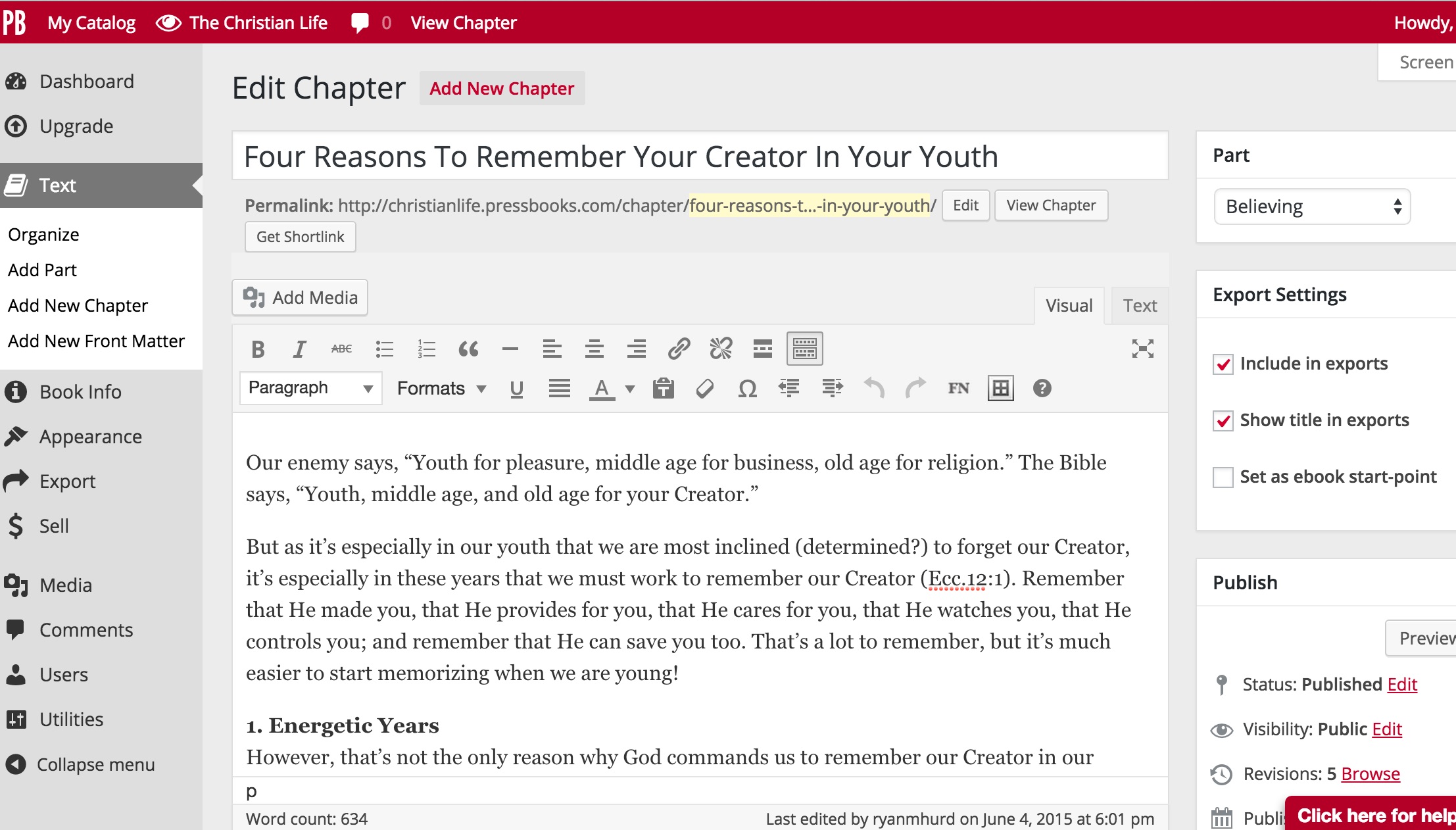
So if you’ve ever used WordPress, you’ll feel very much at home. And if you haven’t, don’t worry, it’s so easy to learn. Moving around chapters is easy – just drag and drop. And you have a choice of dozens of typeset templates which you can experiment with at the click of a button to see what your finished book will look like. People will think you’ve spent hundreds of dollars on Typesetting.
You can output in PDF, MOBI, and EPUB for free, although the book will have a Pressbooks watermark on the pages. You can remove the watermark by upgrading the book. That costs about $20 for EPUB and MOBI, and a further $80 for PDF. However, Pressbooks often offer special 50% discounts, which you can be informed of via their email list. But even without the discount, you basically can produce a really nice looking eBook in MOBI (Kindle) format for $20. The only additional cost might be to get a cover designed. Mine were done by my blog designer, Cameron Morgan.
The final step is to upload your book to Kindle Direct Publishing, which is quick and easy, and within a few hours, your book will be on sale on Amazon! You can also produce a paperback version of your book using Createspace, a process I’m starting out on with another eBook, God’s Mobile Home (to make it more readable for kids). Pressbooks again can help with the initial stages of that, but I’ve found the Createspace uploading process a bit more complicated compared to Kindle Direct Publishing.
Self-publishing will never take the place of quality Christian publishers; but it might be a useful way for you to get started in writing and publishing, and maybe attract the attention of a publisher or an agent. For myself, I see it as a way of making existing written material more accessible and permanent, and also for quick and smaller publishing projects that are worthwhile but probably wouldn’t interest a traditional publisher. I also used it to bundle together a number of smaller works on happiness that came out of my research for The Happy Christian but were not included in that book (see A Bundle of Joy: Six Books on Christian Happiness).
BTW, although it might be tempting to price your books at zero in order to increase distribution, Amazon don’t like you doing that and will not actively promote your book in their searches (they want their cut!).
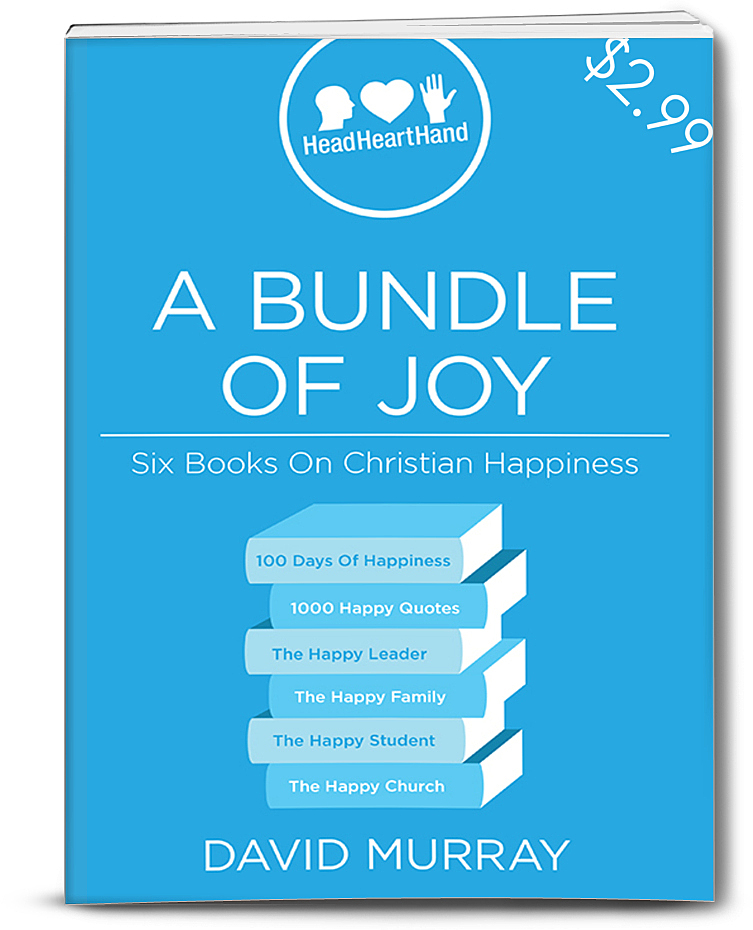
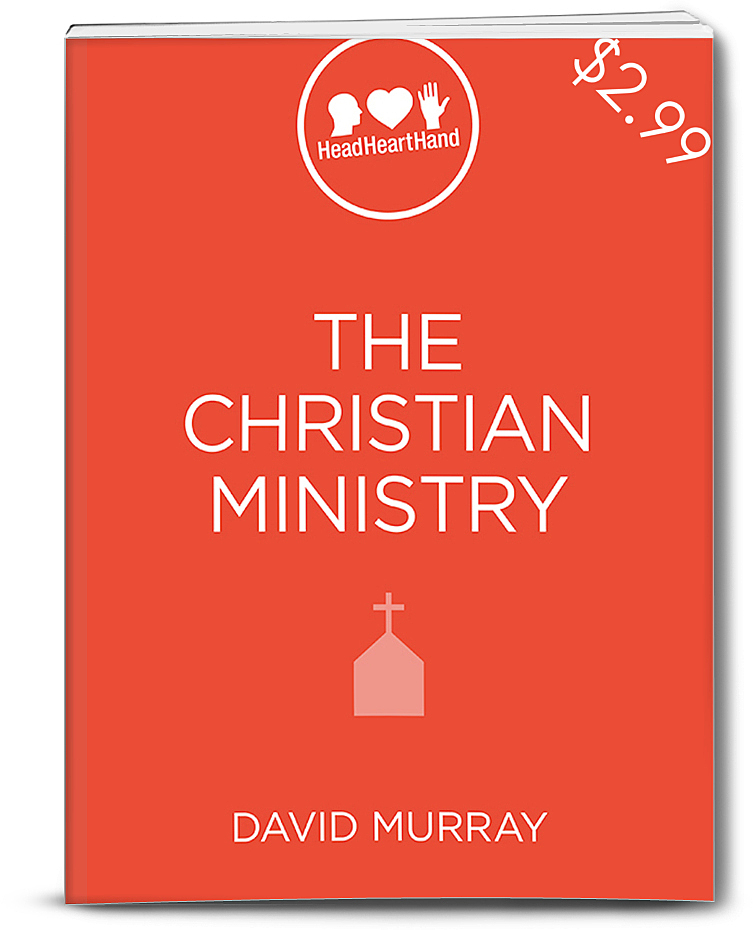
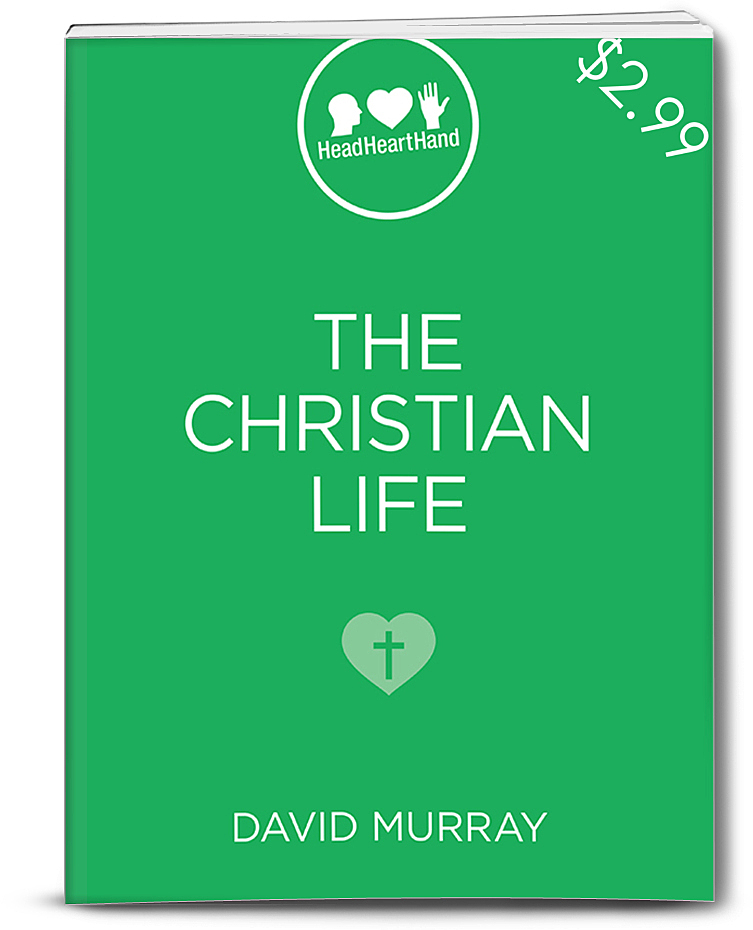
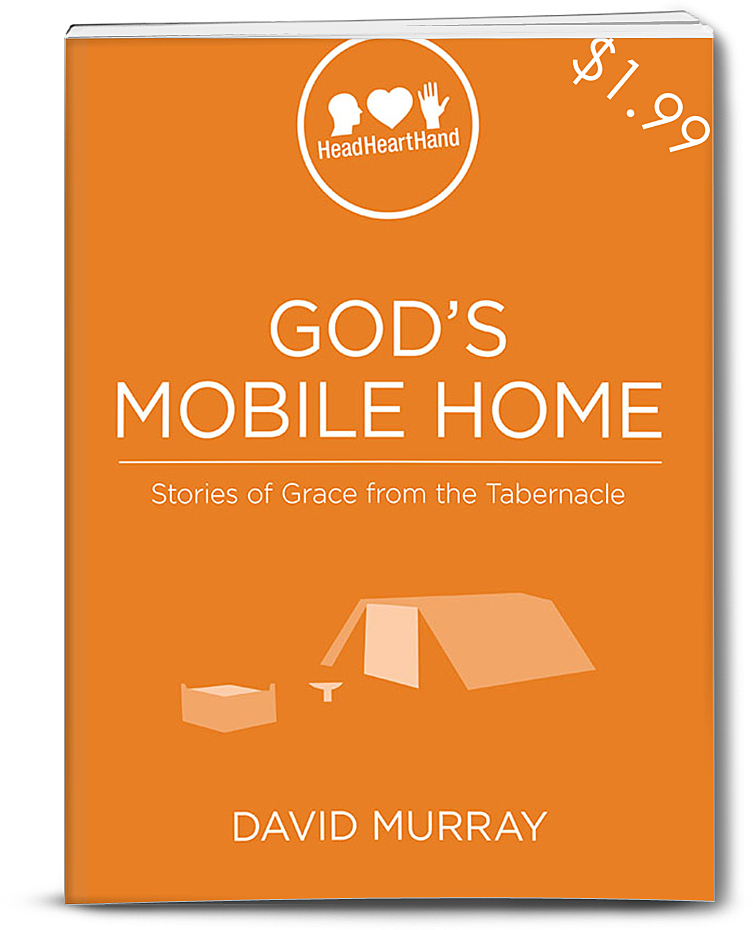
Pingback: Today in Blogworld 07.02.15 - Borrowed Light